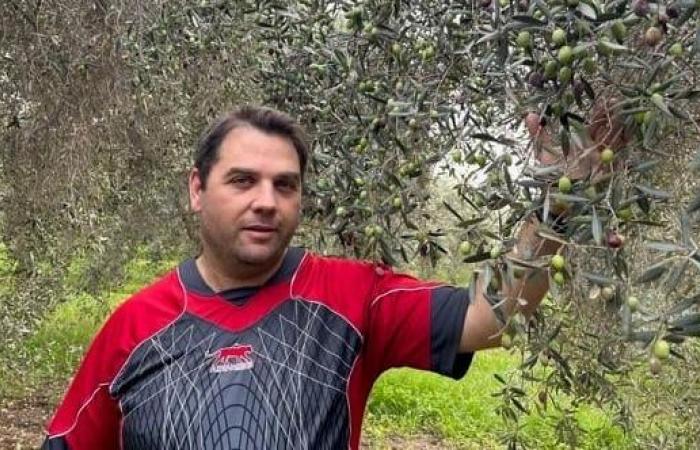Like many other farmers in the region, Laurent Israelian, secretary general of the FDSEA13, is preparing to demonstrate. All around, seasonal workers “paint” the branches of the olive trees, during this peak harvest period. Under the effect of the vibrating tools, the small green warheads fall into the nets. Then, head to the mill, nearby. There, in addition to his own production, Laurent Israelian transforms, into liters of AOP oil, dense cargoes delivered by individuals from the surrounding area.
The work is intense in the mill shed as well as throughout this olive grove of around thirty hectares where the eleven employees of its collection team are busy early and until late. Thus, the already busy days stretch much longer from mid-October to mid-December. For twenty years, Laurent Israelian, 41, has been working hours at Domaine Plaines Marguerite where this son of an olive grower has always worked to develop his business. His efforts are not in vain. But this requires all the more consistency as the agricultural world is faced with increasing difficulties linked, in particular, to counterproductive constraints.
Last winter, Laurent Israelian was one of the figures of the major peasant demonstrations in Bouches-du-Rhône, from Châteaurenard to Marseille via Salon. At the time, the demands proclaimed at motorway blockades or in front of mass distribution platforms had preceded the ball of promises announced at the beginning of spring. But since then, and “apart from the detaxation of GNR, nothing has changed“, in the daily life of this olive grower-miller from Maussane – native of Marseille.
An accumulation of bureaucratic tasks
“By stopping the reform process, the dissolution of the National Assembly did not help matters“, recalls Laurent Israelian who, within the framework of controls by FranceAgriMer and others, “continues to waste time with the administrative work consisting of providing a whole bunch of information about the quantities of products packaged and sold, all useless information in view of the statistics which are always tiny in return.“
This accumulation of bureaucratic tasks represents fewer hours spent in the olive orchards. Laurent Israelian asked to be relieved… it was a failure. It is also for its hopes for international harmonization of regulations. If French olive growers produce 5% of France's consumption, other countries, in Spain, Italy or the Maghreb, provide the rest by ignoring the standards in force in France (phytosanitary products prohibited but authorized in their countries, hourly labor rate, etc.), which offers them a much lower production cost and allows them to sell much less expensively.
“They take us for idiotsrises Laurent Israelian who, in a few days, is preparing to resume the protest movement. Certainly, the government took time to be formed and the law on finance was undoubtedly a priority, but now the State must quickly take up the agricultural problem head on. Otherwise, it's not going to do it. This can't last. If they no longer want us in France, they have to tell us. There is little or no future for the farming profession. If I had to settle in today, it would have been extremely complicated. It's quite simple, I earned a lot more money twenty years ago.“






